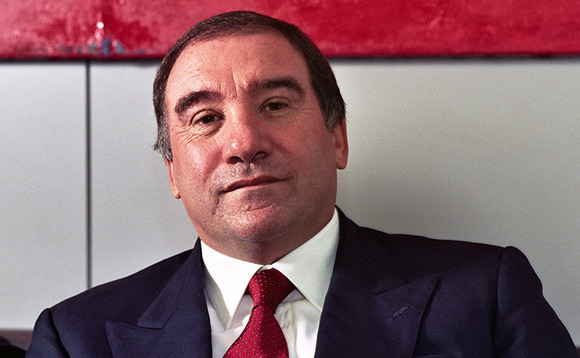
Q&A: Private Equity Partners' Fabio Sattin

Ahead of the upcoming unquote” Italia Private Equity Forum on 30 June in Milan, Private Equity Partners chair and founder Fabio Sattin talks to Amedeo Goria about recent drivers and opportunities for the industry in the country
Amedeo Goria: In the first quarter of 2016, the Italian private equity industry suffered a slowdown, while in April and May we saw a 155% increase, according to unquote" data. What has been driving this surge in activity?
Fabio Sattin: I think there are two main drivers behind these developments. The first driver concerns the structure of the players in the market, which will not be exclusively represented by the closed fund anymore. An increasing variety of structures are gathering pace in the country and sometimes, deals done by those new players are not included in the official private equity statistics.
The second driver concerns the complementarity between equity and debt instruments. We are witnessing an increasing use of hybrid instruments with particular regards to minority stake acquisitions. Large players, such as Blackstone, are using these hybrid private debt instruments more and more for deals on a very relevant size in the country. Those instruments are more adaptable to the particular situation than the pure equity investment.
Generally speaking, we can see a sharp increment of the private debt market in the country, while the usual fund structure based on a five-plus-five investment period is aging. Inside the private equity market, new players are gaining visibility with innovative investment structures to better adapt to several different situations. Those actors include listed and non-listed holding companies, the nascent Special Purpose Acquisition Companies (SPAC) and the increasing numbers of club deals, including family offices ones, as well as an emerging trend of making private debt deals with a private equity structure. The Italian market is becoming more stratified and the number of instruments available to investors is increasing, leaving the well-known closed fund as just one instrument among others.
AG: How is this affecting the Italian market?
FS: Those drivers define a positive scenario for the Italian economy, which is still characterised by a large disproportion between the high number of SMEs in the country and the number of investors active in the market. If we look at the number of SMEs, Italy is the second largest economy in Europe.
Nevertheless, the number of GPs investing in the market is still very low. This gap shows the high number of opportunities for private equity players in the Italian market. As a matter of fact, the Italian buyout industry has regained ground compared to its European neighbours during the last few years, with regards to both fundraising and dealflow.
AG: What do you expect for the Italian private equity market in the next few months?
FS: Italy is not a market with high volatility. I think it will grow in the second half of the year, but it is important to look at the whole range of instruments used to invest in the private equity market. If we look exclusively at the traditional funds and their fundraising activity, we would probably identify low levels of growth, but this is not representative of the market. The reason for that is the increasing number of alternative players active in the market that sometimes, as I've said, are not included in the official data.
AG: What exactly are the opportunities for alternative lenders in the country?
FS: The new regulatory reform prompted at the beginning of the year defines a wide range of opportunities, particularly with regards to the private debt market. After all, the Italian economy is based on family-owned SMEs with a need of growth capital. Most of the time, those entrepreneurs are keen on retaining control of their business and often are also wary of taking additional minority shareholders on board, because the company's shareholder base is highly fragmented. This situation represents a great opportunity for players providing hybrid instruments, including private debt facilities, which can be operated with a private equity logic in the background.
AG: Do you see other investment opportunities arising in the market?
FS: Yes. Buy-and-build acquisitions are also a key driver in the Italian market. In fact, as Italian SMEs are too small to compete internationally, the only way for them to grow is to merge, but, every time several companies merge in a joint group, they need a leader that enables the entrepreneurs to talk to each other and combine their businesses. Against this backdrop, the Italian market offers a wide range of consolidation opportunities for the private equity industry.
Furthermore, public-private partnerships represent another investment opportunity in Italy. Following the state's budget restrictions and lack of state-backed investments, private investors can take the chance to invest in public-interest-led initiatives. Those include healthcare, tourism, hotels and infrastructure sectors, among others.
Lastly, one more opportunity pertains to the large amount of non-performing loans that currently burden the Italian economy. Here again, the partnerships between public and private could represent a solution to the situation, as it is the case for the state-backed Atlante fund.
AG: Do you think Italy needs more regulatory reforms to open up the market?
FS: I don't think there is a regulatory hurdle in Italy, neither in terms of legislation nor in terms of taxation. The recent reforms produced positive results on several points. For instance, the introduction of mini-bonds opened up the Italian private debt market to specific credit instruments. The regulatory side can be further improved, but I think that the country mainly needs a cultural change from the entrepreneurs' and the investors' sides, which often do not really make the most out of the economic situation in the country.
The 10th annual unquote" Italia Private Equity Forum will take place on 30 June 2016 in Milan. Join us for the most renowned and established private equity forum in Italy; it will be a day filled with insightful presentations, discussions and critical networking with the best local private equity leaders. Click here to find out more and book your place
Latest News
Stonehage Fleming raises USD 130m for largest fund to date, eyes 2024 programme
Sponsor acquired the public software group in July 2017 via the same-year vintage Partners Group Global Value 2017
Stonehage Fleming raises USD 130m for largest fund to date, eyes 2024 programme
Czech Republic-headquartered family office is targeting DACH and CEE region deals
Stonehage Fleming raises USD 130m for largest fund to date, eyes 2024 programme
Ex-Rocket Internet leader Bettina Curtze joins Swiss VC firm as partner and CFO
Stonehage Fleming raises USD 130m for largest fund to date, eyes 2024 programme
Estonia-registered VC could bolster LP base with fresh capital from funds-of-funds or pension funds









